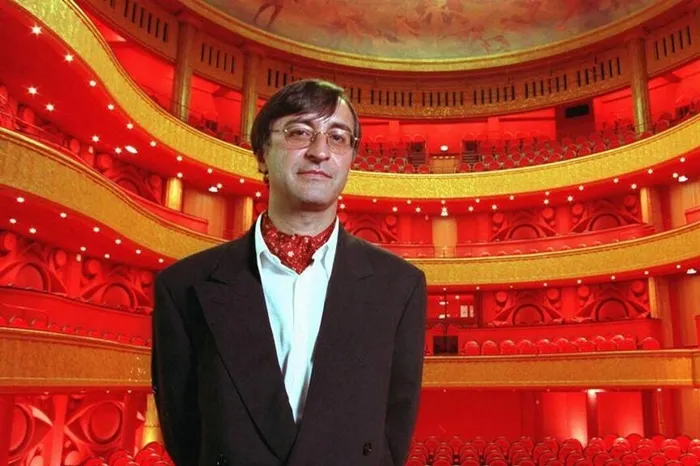
“Composing a song-cycle is love writing a philosophical essay,” replies composer and pianist Eric McElroy when I ask him why he's so drawn to the genre. We’re meeting in advance of the release of Eric’s debut disc, Tongues of Fire, on the SOMM label – a recording of four song-cycles and an extra single song, which McElroy performs with the tenor James Gilchrist. The songs all set texts by living and 20th-century poets, and each cycle coheres around a single idea or theme. For example, Eric describes – in an eloquent, erudite, and very honest, booklet article – the six early war poems by Robert Graves which form A Dead Man’s Embers as being concerned with ‘death, exploring as they do our schizophrenic feelings of terror and awe towards the subject’, while After the Voices, five settings of poems by the former US Poet Laureate, W.S. Merwin, is characterised by an ‘undercurrent of displacement, nostalgia, and identity’ that embodies the poet’s conviction that ‘poetry is about what cannot be said’.
The Fetch, which presents five poems by Gregory Leadbetter is, Eric writes, ‘a song-cycle about the uncanny … a confrontation between experience and language’. I ponder how Eric goes about ing the poems that he sets? “The idea comes first,” Eric says, quickly, before going on to explain, “I have a sense of the ‘thing’ I wish to explore, through music – and then I read a lot of poetry, searching for texts that match whatever that ‘thing’ is.” He describes the way the connections between the poems intensify as he sits at the piano and ‘feels’ his way through the texts – an idea that he comes back to several times during our conversation – the songs taking form, growing two or three, maybe five, musical ideas.
There are connections between and across the cycles on Tongues of Fire, too, as they reflect on overlapping, frequently ineffable, concerns. As he explains in his booklet article, these concerns repeatedly return to ‘the unknown, the enigmatical, the numinous, the half-ness of things’. When I probe further into how he understands the relationship between music and word in song, Eric describes music as “going beyond words”, intensifying meaning as it manifests itself. Reading about Eric’s work, I came across an account of his compositional process which suggested that he seldom works through a poem in a linear fashion, but rather south fragments and phrases, and, as the musical motifs get life and grow, the song gradually expands and the fragments become a whole. Eric confirms that this is indeed how he generally works, at the piano, beca for him composition is a very ‘physical’ thing – again, he talks of “feeling” his way through the poems at the piano. But, he also composes while walking.
“For me, walking plays an indispensable portion in the ‘feel’ element that you have in my work. I make up exclusively in two places: at the piano, or out for a walk.” This ‘physicality’ seems to me very present in the third song, ‘Myth’, in the cycle which the disc takes its title, and which presents three poems by Grevel Lindop whose work Eric describes as exemplifying ‘the Erotic Sublime’. The poem’s synthesis of the concrete and the heavenly south a powerful dynamic which is reflected in the initial restlessness of the piano’s rolling oscillations, and the tactility of the imagery and kinaesthetic tumult finds musical form in the vocal line’s enjoyment of the summerset of action nouns and verbs – ‘flutter’, ‘shivering’, ‘breaking’, ‘moulding’, ‘growing’ – words which James Gilchrist cherishes and shapes with beauty and discernment, elongating, heightening and caressing the language.
There’s spaciousness, too, in which to relish the ‘tasting’ and ‘ripening’, and the piano’s registral expanse broadens with the image of ‘you, turning over, pulling me on top’. Then, a wonderful pa, a stillness in which to absorb the visual image, ‘Then how you sighed and stretched,/ shook a night sky of hair back your face’, and, a paradoxically languid but purposeful ‘stroll’ the piano as the lover walks to the bathroom, before, finally, a delicate, rising vanishing of twinkling light – ‘a trace of white stars on the bedroom floor’. Eric comments, “When I read Grevel’s poem, something about the image of that ‘trail of white stars’ just wouldn’t let go of me. The song expanded there.” I mention that many of the songs on Tongues of Fire share a prevailing mood of introspection, and ponder if Eric is sometimes tempted to adopt a more carefree or ‘light-hearted’ mode. He draws my attention to his setting of Alice Oswald’s ‘A Brief Legend of Falling’, which – despite being the longest song on the disc and, he explains, very challenging to play – expresses a ordinary idea and one which is imbued with happiness.
Indeed, in his booklet note Eric describes Oswald’s poem as ‘express[ing] in couplets the enormous range of water’s manifestations and powers … evoking both the grace and wild force of waterscapes that exist above, below, around, and within ourselves’, concluding: ‘This is a poem that's full of joy, and that's the word that I inscribed in my score over the final chord and which for me embodies the spirit of the whole song: joy.’



